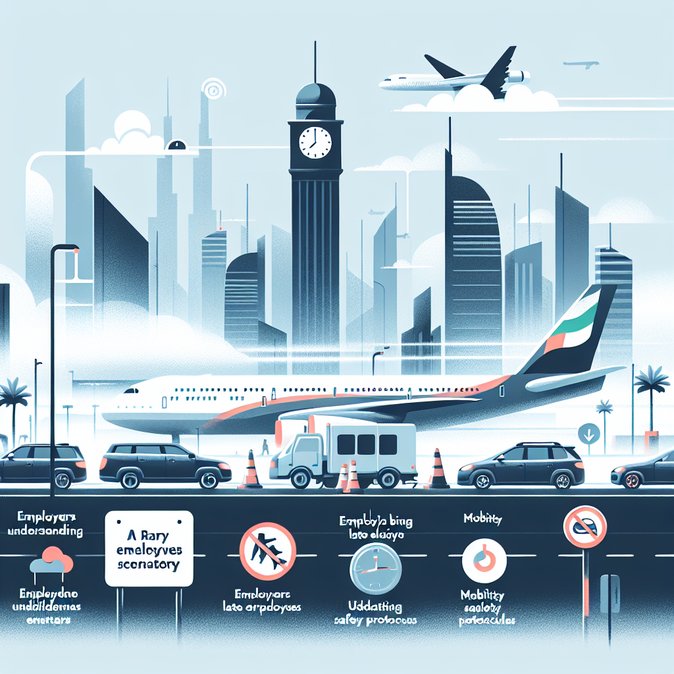
Thick fog blanketing large swathes of Abu Dhabi, Dubai and Sharjah triggered the UAE’s highest-level weather alert early Sunday, causing at least 18 inbound flights to divert from Dubai International (DXB) and delaying dozens more. The National Centre of Meteorology (NCM) upgraded its advisory to ‘red’—reserved for hazardous conditions with visibility under 500 metres—while police cut speed limits on major highways to 80 km/h and deployed extra patrols.
Airlines scrambled to manage knock-on effects: Emirates rerouted two A380 services to Muscat and Al Maktoum International (DWC), Etihad held departures on the ground in Abu Dhabi, and several Gulf carriers warned passengers to expect residual delays throughout the day. Logistics operators at Jebel Ali Free Zone reported pickup backlogs of up to four hours, forcing some multinationals to activate contingency warehousing contracts.
![Red-alert fog snarls flights and roads; HR teams told to invoke duty-of-care playbooks]()
For employers, the Ministry of Human Resources & Emiratisation reiterated that staff delayed by officially declared severe weather cannot be docked pay, provided HR departments keep written records of internal advisories. Global mobility managers are being urged to circulate NCM updates, confirm that travel-risk insurance covers fog-related disruptions and ensure that expatriate employees driving rental cars are aware of variable speed-limit signs that flash in real time.
Occupational-safety consultants say the incident highlights a growing compliance obligation. “The UAE’s duty-of-care expectations are evolving beyond job-site safety to include commuter risk, especially for sponsored expatriates,” notes Helena Brett of consultancy SafeAxis. Companies that fail to provide evidence of proactive communications could face administrative penalties under the updated labour law.
While the red alert is expected to lapse by Monday, meteorologists warn that fog season peaks from November to February, suggesting that similar disruptions could recur. Airlines recommend that travellers add at least four hours of buffer time when connecting through DXB during early-morning slots and use carrier apps for real-time rebooking.
Airlines scrambled to manage knock-on effects: Emirates rerouted two A380 services to Muscat and Al Maktoum International (DWC), Etihad held departures on the ground in Abu Dhabi, and several Gulf carriers warned passengers to expect residual delays throughout the day. Logistics operators at Jebel Ali Free Zone reported pickup backlogs of up to four hours, forcing some multinationals to activate contingency warehousing contracts.

For employers, the Ministry of Human Resources & Emiratisation reiterated that staff delayed by officially declared severe weather cannot be docked pay, provided HR departments keep written records of internal advisories. Global mobility managers are being urged to circulate NCM updates, confirm that travel-risk insurance covers fog-related disruptions and ensure that expatriate employees driving rental cars are aware of variable speed-limit signs that flash in real time.
Occupational-safety consultants say the incident highlights a growing compliance obligation. “The UAE’s duty-of-care expectations are evolving beyond job-site safety to include commuter risk, especially for sponsored expatriates,” notes Helena Brett of consultancy SafeAxis. Companies that fail to provide evidence of proactive communications could face administrative penalties under the updated labour law.
While the red alert is expected to lapse by Monday, meteorologists warn that fog season peaks from November to February, suggesting that similar disruptions could recur. Airlines recommend that travellers add at least four hours of buffer time when connecting through DXB during early-morning slots and use carrier apps for real-time rebooking.











